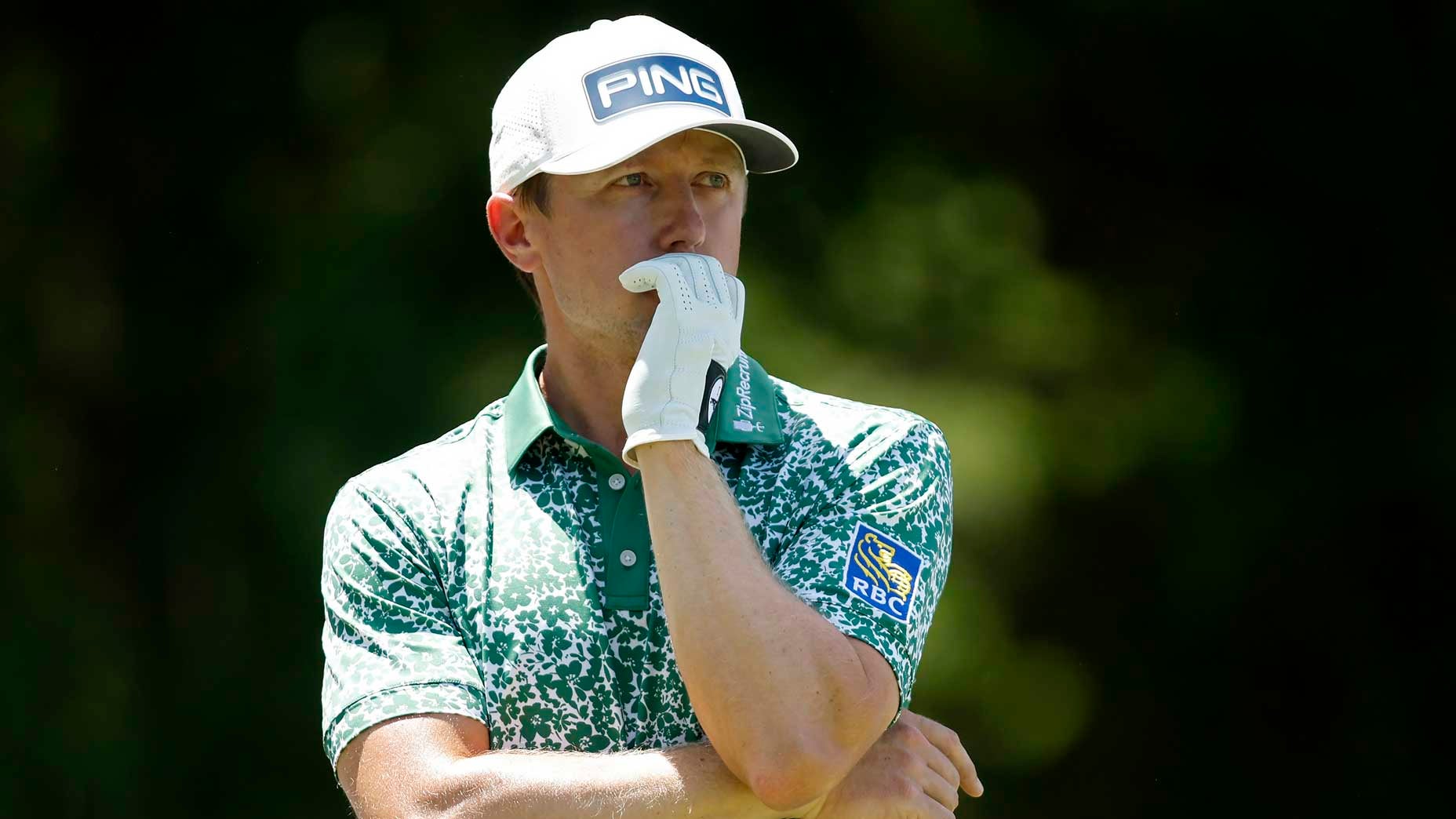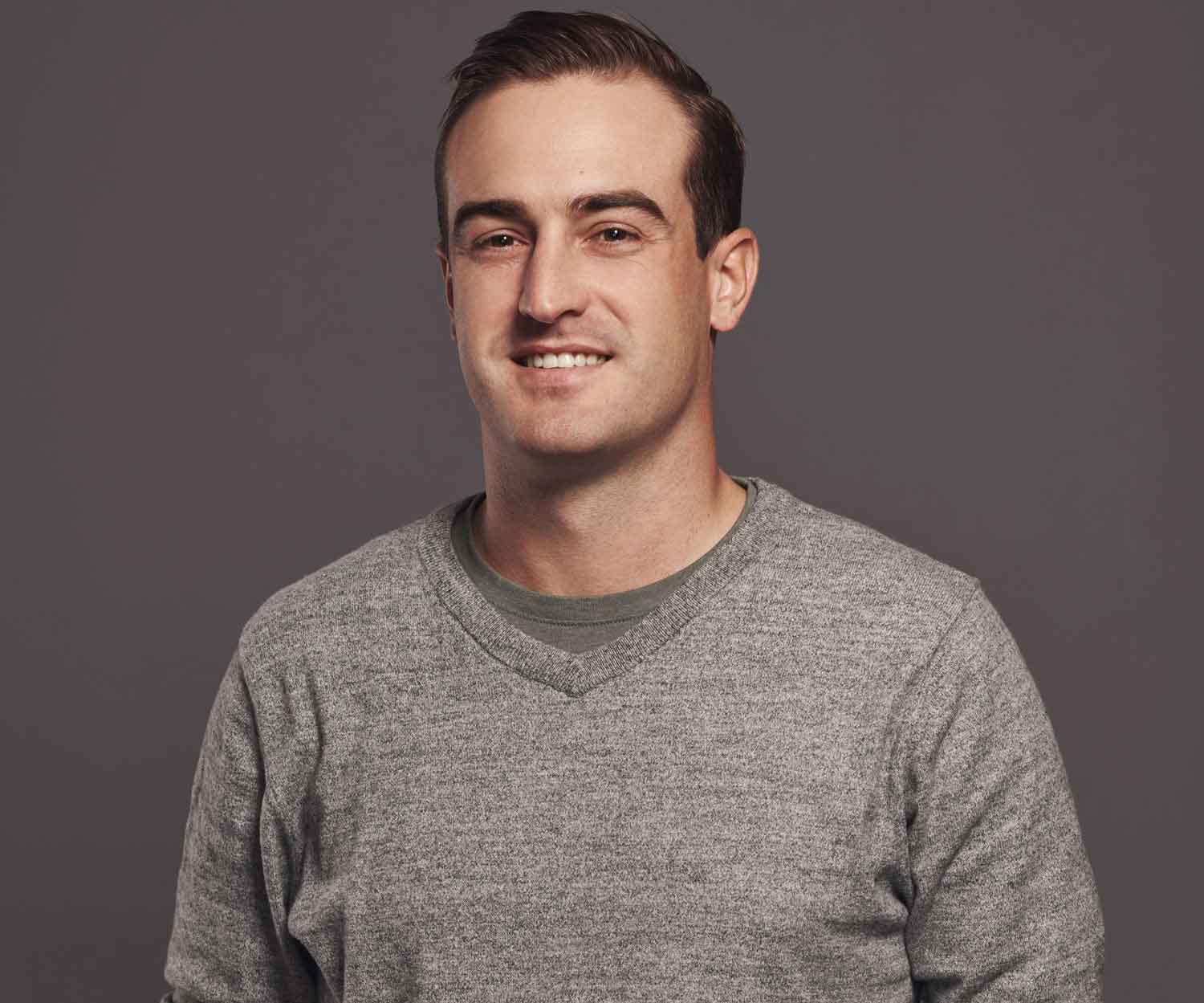
Mackenzie Hughes earned his way into The Sentry when Jon Rahm left for LIV Golf.
Getty Images
Mackenzie Hughes’ press conference started out like many early January pressers do, with a conversation about how nice it is to be in Hawaii to start his season. If you’ve made it to Hawaii, Hughes said, it feels like “a celebration.” Anyone who won a PGA Tour event in 2023, or any others who finished in the top 50 in the FedEx Cup, are invited. The cream of the crop.
Of course, a couple of months ago, Hughes couldn’t have planned on being there for the celebration. He was Mr. 51, the first odd-man out. Until Jon Rahm, Mr. 18, left for LIV Golf, opening the door just wide enough for Hughes to slide in. Which brought him to the media room at Kapalua for one of the first press conferences of the PGA Tour season.
For about nine minutes, the conversation hovered around dreamier topics, like whales jumping in the ocean off the coast, within sight of the driving range. Simple things. Until my colleague Dylan Dethier asked about some thoughts Hughes shared on Twitter that the fan was getting lost in all the decisions made at the top level of the sport.
“2019 was, like, all about golf, you know?” Hughes said. “Our economic model was sustainable. The LIV threat came along and all of a sudden we started to double the purses, and we’re asking sponsors to double their investment, and we’re giving them the same product. Fans also, I think, are left wondering, do guys even love playing golf anymore, or are they all just concerned about money?”
Hughes is disappointed it has gotten to that. As a member of the Tour’s Advisory Council, he was one of 16 players who congregated every few weeks in 2023 to discuss issues and how they think the Tour should handle them. An obvious focal point of those conversations has been LIV Golf, but as a result of that, so has the product, which the Tour itself can package to sell to fans, sponsors, TV networks, etc. It’s why media rights are a main ingredient for how Tour players derive their value.
When Hughes looks at what the Tour is selling as a product in 2024, he doesn’t see much difference from what it sold in 2019. In a strictly economic sense, the same tournaments have been slightly rejiggered and are being sold for a much higher cost to sponsors, who are on the hook for a majority of the purse value.
“We have the same product that we had in 2019, yet we want this, like, increased investment, not just increased, but increased in a big way,” he said. “I just think that the product, while I think it’s great, it’s the same product. I just think fans are kind of left scratching their head thinking, like, What is going on? They also don’t know where certain guys are playing and there’s spats between the LIV and the PGA Tour, and it’s not unified in any way, shape, or form. There’s negotiations going on that are unclear, they have been dragged on for a long time. The fan just wants to watch golf. I think you watch sports for an escape from other nonsense, but I think golf has brought a lot of nonsense onto its plate, and now you don’t get just golf — you get a lot of other stuff going on. It’s a bit of a circus.”
Hughes doesn’t like how unsustainable the product feels right now. He doesn’t like how entitled many of his colleagues on Tour can be. He doesn’t like the outlook of forcing purses to a $30 million threshold. These were all thoughts he elevated on Tuesday in Hawaii. He doesn’t like seeing “the-Tour-owes-me-something” attitude, or that fans can’t guarantee which players will be playing which events. And given there was a microphone in his hand, he decided to speak up.
“I think that also there’s a lot of guys that feel entitled out here,” Hughes continued. “Like, you start to see all these big amounts of money flying around and this offer and that offer and people think, Oh, well I stayed loyal, like, where’s my money? And it’s like, you’re not entitled to play the PGA Tour. You have the right and you have a privilege to play out here and it’s an opportunity, but it’s not like anyone owes you anything. No one’s forcing your hand. You don’t have to stay, you can go play over there if you want.”
As golf writers, sports writers, and journalists everywhere are wont to do, if a subject is okay going there, we are not inclined to stop them. It’s clearly a topic he has given a lot of thought to. So, with the Tour’s future a bit murky, is there an outcome Hughes is rooting for?
Yes and no. In short, he wants Brooks Koepka back on the PGA Tour. He has used Koepka has an example for months now, ever since the Tour agreed to enter negotiations with the Saudi PIF. If the Tour’s goal is to establish a for-profit entity, Hughes sees the commercial value of having Koepka involved. Koepka is a 5-time major winner, somewhat polarizing, says what he thinks, and isn’t shy about trying to back it up. Fans, and sponsors, are attracted to Koepka, who finished in 8th on the Tour’s PIP standings during the only year he was eligible.
Hughes says the same for Cam Smith, Phil Mickelson, Dustin Johnson — all the biggest names on LIV Golf. He’s keen to point out that not all LIV Golfers deserve a place back on the Tour, but a certain crop of them would be smart business. But at the same time, he sympathizes with, in his words, “the Spieths, the JTs and the Rorys and the Scotties and the Will Zalatorises.” Put another way, the Tour stars who were (most likely) offered massive sums of money to leave the Tour, but ultimately stayed.
“How do you make everyone happy?” Hughes asked aloud. “You can’t. The way forward I hope is smoother, but I know it will be messy before it gets smooth again.”
For those curious about how long it’s been messy, we’re coming up on a clean 24 months since Phil Mickelson’s incendiary comments in a biography were shared to the world for the first time, turning the focus of the 2022 Genesis Invitational away from the golf and directly at Saudi money. Hughes said that off-the-course conversation is what is making the experience difficult for golf fans.
“It seemed like every day that you woke up there was some news,” Hughes said, “or some random headline, or Patrick Cantlay’s trying to take over the Tour. It’s like every day you’re like, What is going on? It’s like living in fantasy land. It’s just every day something was new, it was new headline, new story.
“There was never just, like, about the golf. Wyndham Clark wins the U.S. Open and has this incredible performance, but that was the week that Jay [Monahan] had taken his leave, and there was lots of talk about Patrick Cantlay, and these different rumors.”
It’s been weird being a golf fan amid all that. It’s been weird being a golfer amid all that, Hughes said, and it has distracted him at times. It’s been especially weird being a pro golfer on the Advisory Council (PAC) as the Tour has seemingly acted quicker than many players wanted. The topic of elevated/designated/signature events — the system of 70- to 80-man fields for $20 million purses that the Tour is pushing forth — came as a surprise to some players on the PAC, the entity they voluntarily joined to voice their opinions and represent every subset of Tour player. If one thing has been made clear in the last few years, decisions are not being made by Mr. 51 or Mr. 50 or even Mr. 35.
The Signature Event system was devised and discussed in a serious way during the summer of 2022, when 23 players met at the Hotel Du Pont in Delaware during the BMW Championship to forge a response to LIV Golf. There were 47 other top pros in town that week who weren’t invited to the “closed doors meeting for the who’s who of the Tour” as Hughes called it. He’s not bitter about it, but it did feel like a slap in the face. He’s not alone in that thinking — Keegan Bradley has echoed something similar — but he’s come to accept it.
“I get it” he said. “I don’t love it, but I get it.”








